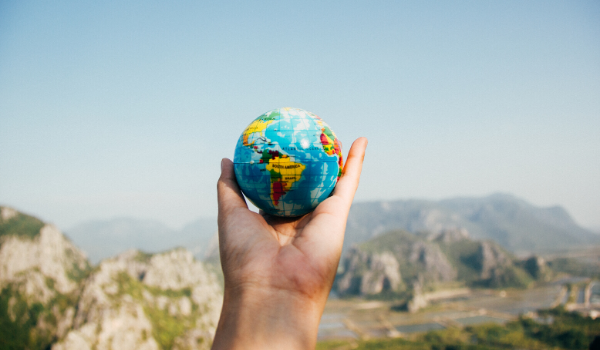On April 22, the 50th annual Earth Day is expected to include more than 1 billion people in nearly 200 countries taking part in what the Earth Day Network calls “the largest civic-focused day of action in the world.”
Since the first Earth Day in 1970 (which was connected to the passage of the Clean Air Act that year), there have been many environmental victories—such as passing and strengthening laws for cleaner air and water, expanding Marine Protected Areas, reducing over-fishing, even improving our ability to predict extreme weather events.
Scientists say more progress is needed if we are to slow the impact of climate change, and carbon emissions are a major threat, according to the U.S. Energy Information Administration. Since the mid-1800s, the agency notes, carbon concentrations in the atmosphere have increased by about 40%. Because of their warming effect on the planet over time, carbon emissions can contribute to severe weather, rising sea levels, and other significant issues.
You might think the problem is so big there’s nothing you can do about it—but there are many ways you can help reduce these emissions. Here are three things the environmental organization Carbon Offsets To Alleviate Poverty (COTAP) recommends to lower your carbon footprint and do your part to help the planet:
- Don’t drive so much—and when you do drive, be fuel-efficient. Driving a conventional vehicle burns fossil fuels, so the less you drive, the less carbon you emit. (Even electric cars typically have a carbon footprint, depending on the type of energy used to charge them.) You also can lower your emissions by keeping your car well-maintained and driving sensibly: To maximize your gas mileage, don’t speed excessively or accelerate suddenly, and make sure your tires are properly inflated.
- Limit your air travel. Everybody loves vacations, but airplane flights generate a lot of carbon emissions: For every round trip transatlantic flight, 30 square feet of Arctic sea ice is lost, according to Climate Central, an independent organization of climate scientists and journalists. When you want to get away, choose shorter flights, or try “staycations” closer to home. Also, if you travel for work, consider videoconferencing tools instead.
- Look around the house. There are plenty of other ways to lower your impact on the environment—and saving energy in your home is a great start. Make sure your home is insulated properly to keep things warmer in the winter and cooler in the summer without cranking the thermostat up or down. Choose appliances that are energy-efficient. Even something as simple as replacing incandescent light bulbs with LEDs (and turning lights off when you’re not using them) can help.
However you choose to mark Earth Day, remember that little steps can create a big impact. Maybe you can bike to work a couple of times a month. Walk to the market instead of driving. Leave the AC off until the hottest days of summer. It all adds up—for you, for those you share the planet with, and those who will come after you, too.
Reposted with permission from the original author, Safeco Insurance®.



